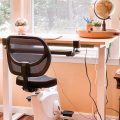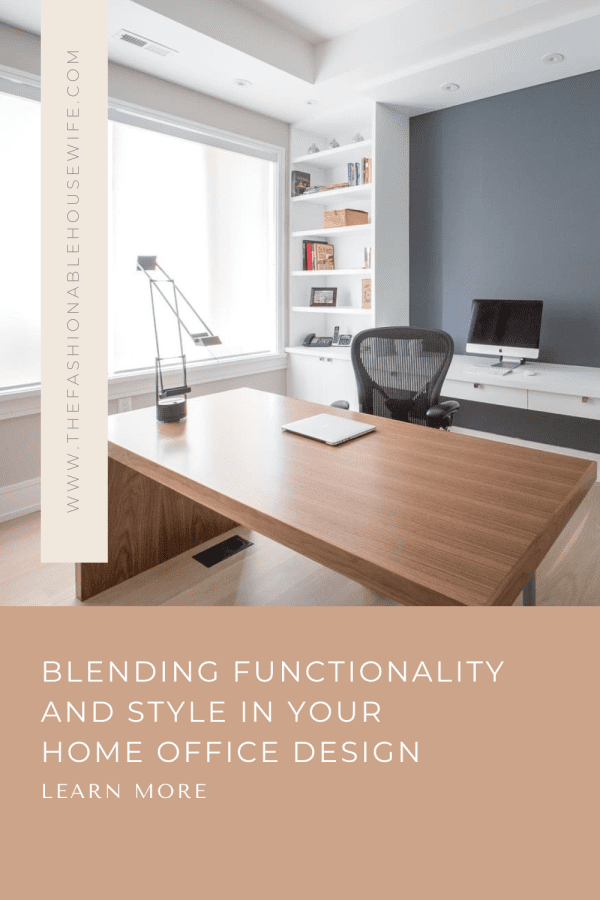
The concept of a home office has evolved significantly, transcending its basic functional role to become a symbol of style and personal expression. At the forefront of this evolution in interior design are custom home office desks and bespoke furniture, serving as the key elements driving the journey forward. These pieces extend beyond their practical use, to embody a reflection of individual taste, work ethic, and lifestyle.
Here we are going to explore the stylistic variations of home office desks, as well as some of the best practices in designing custom millwork for storage and display. For that, we are taking a look at some of the key factors that shape the industry, and how these might impact current and future trends.
The art of customization in home office design
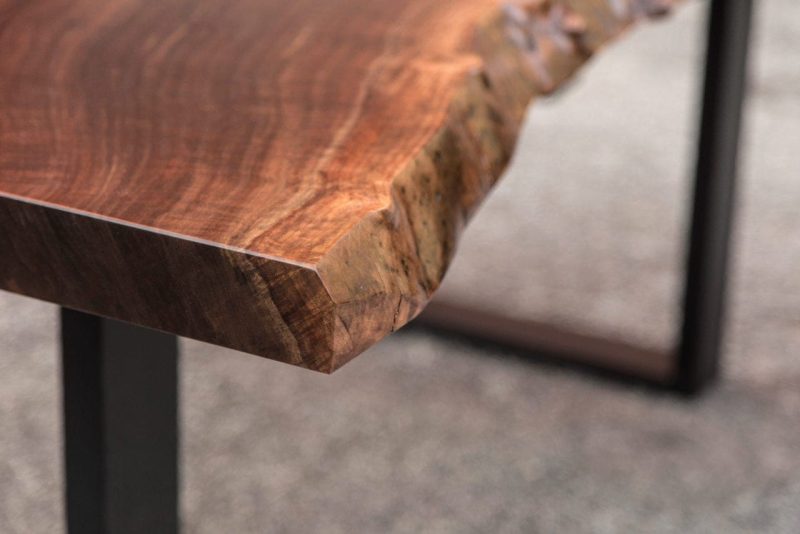
The post-pandemic era is marked by a radical shift in work preferences, as people have experienced the comfort and convenience of the home office. But with scarcity of space, customization has become the most prominent element of designing these interiors.
The cornerstone of an effective home office is the desk, which must fit the space perfectly, irrespective of whether it is placed in the center of the room, facing a wall, or against a corner. The solid wood desk is not just a surface to work on; it’s a statement. It dictates the rest of the layout, which is why designers start with the workstation in mind and then expand to include all other furniture elements.
The beauty of a natural wood desk lies in its uniqueness—no two pieces are identical. Customization allows for this uniqueness to be tailored specifically to individual needs and aesthetic preferences, while preserving a sense of sophistication and charm.
Millwork, on the other hand, relies on bespoke solutions even more. From wall shelving to entertainment units, it can maximize storage without intruding on the senses and overcrowding the home office.
Luxury in materials: choosing the right wood
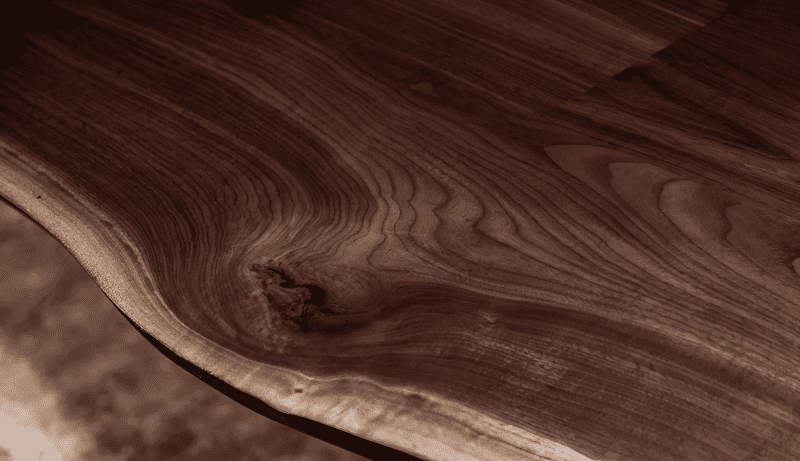
When it comes to furnishing the home office, wood has become the material of choice. Manufacturers and designers prefer domestic hardwoods as they are easy to work with, allow for unlimited customization options, and adapt to various stylistic conceptions through a smart use of woodworking techniques and finishing options.
This is why the choice of wood in a luxury executive desk can significantly influence both its look and longevity. Species like oak, walnut, and mahogany are popular for their durability and rich texture, and a luxury computer desk crafted from such exquisite materials can elevate the overall ambiance of a home office.
For homeowners who would like an exceptional home office desk that offers museum-like quality, American black walnut might be the best material of choice. This hardwood can be designed with raw edges, also known as live edge slabs, following the organic contours of the tree from which the boards were cut. It offers excellent porosity, which helps the wood readily absorb finishing agents, making it ideal for polishing and staining, as well as holding glue and joinery. Walnut also provides Janka hardness rating of 1010 lbf (4490 N), which offers an excellent balance between durability and workability.
Design Trends in Custom Desks
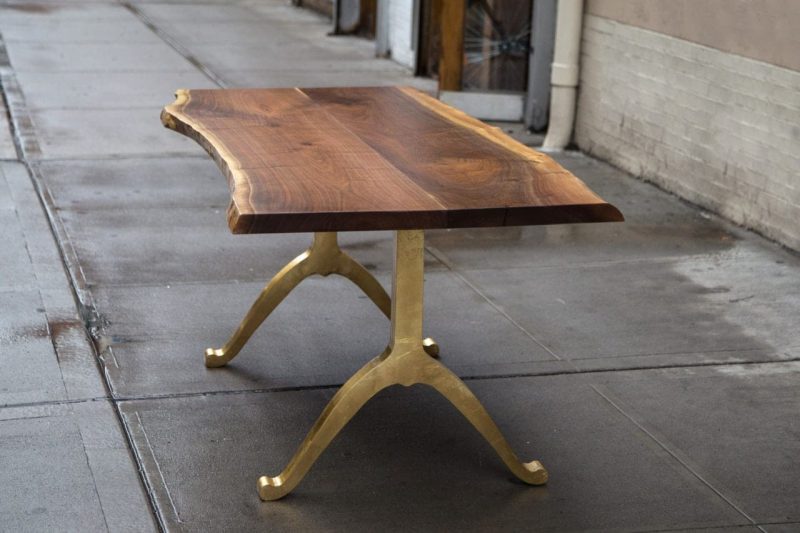
In the realm of luxury desks, design trends often lean towards a blend of minimalism and opulence. Sleek lines, subtle curves, and understated elegance are hallmarks of high-end desks, and they are difficult to replicate by most retail options.
The natural wood desk has become a staple of affluent décor, as it adds warmth and character to the office space. It may come with a pair of metal legs, but the tabletop is almost exclusively out of wood. Hairpin legs are a somewhat more affordable option, whereas custom geometric shapes made of wood or metal can drive the price of the desk much higher. Frame legs, canted legs, and V-shaped legs are also popular, but designers often choose a waterfall concept that erases the need for a separate base altogether.
Implementing custom millwork to organize the home office
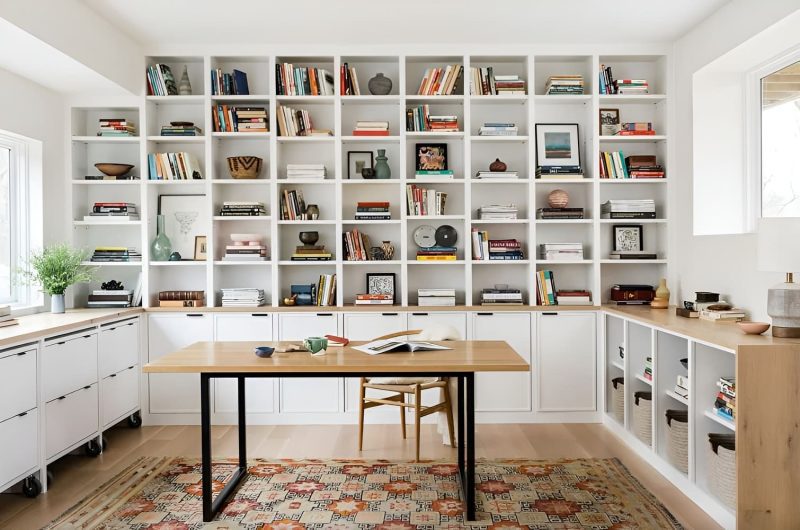
Designers today are quick to ignore retailer options, as bespoke craftsmanship offers far more benefits in terms of convenience, quality and style. This is why the modern office should be almost exclusively furnished with custom millwork, which can solve all storage problems of the work environment.
Millwork relies on engineered wood, but there is a great difference between suppliers in terms of how durable these pre-fabricated panels are. To complete a quality project, designers should look for manufacturers who are ready to work with densely pressed boards that won’t chip away with long term use, or under heavy pressure. Much, however, would depend on the blueprint as well, as cleaver design solutions can emphasize the strengths of each material while minimizing its weaknesses.
No need for a compromise
Customized office furniture, especially custom home office desks, represents more than just a set of functional items; it is a nexus of style, comfort, and personal expression.
Ergonomics plays a crucial role as well, ensuring that desk height, chair alignment, and lighting work in harmony to provide comfort during long working hours. But it is only customized office furniture that offers the advantage of tailoring these aspects to individual preferences.
The same can be said of honoring our cultural values, in choosing handmade items made of durable and sustainable materials. This is why the current trends in home office design are heavily skewed towards bespoke solutions and natural wood, especially when it comes to high-end desks and custom millwork. Luckily, it is possible to achieve both functionality and style without compromising on any of your preferences.

